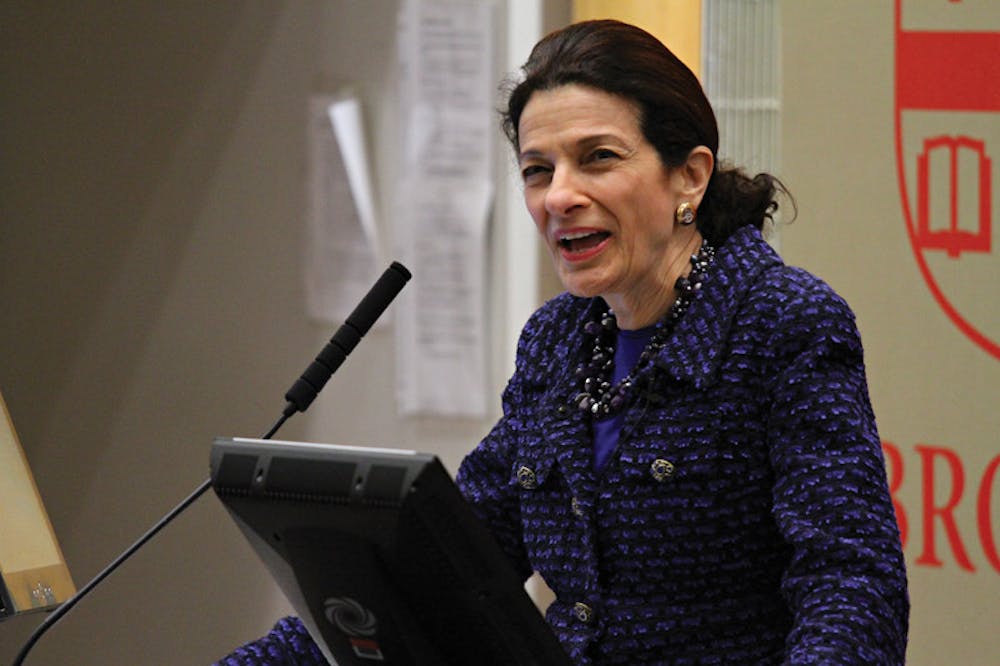“Democrats and Republicans are like two ships passing in the night — one in the Atlantic and the other in the Pacific. They are separated by light-years on the cornerstones of the issues,” said former U.S. Sen. Olympia Snowe while delivering the annual Noah Krieger ’93 Memorial Lecture Monday afternoon.
Sponsored by the Taubman Center for Public Policy and American Institutions, the lecture — titled “Bridging the Divide” — took place in MacMillan 117.
Snowe represented Maine in Congress for 34 years, first in the House as a representative for Maine’s Second Congressional District and later as a senator for 18 years before retiring in January.
“She was the youngest Republican woman to serve and the first Greek-American woman to serve in the House and was also the first woman in American history to serve in both houses of the state legislature, as well as both houses of Congress,” said Marion Orr, director of the Taubman Center.
“She played a key role in a coalition of centrist senators who played a vital role in moving our country forward out of the gridlock that occurred in the 1990s,” he added.
Despite early election predictions that she would be reelected, Snowe announced in February 2012 she would not run again, citing “an atmosphere of polarization and a wave of highway ideologies” as her reason for retiring in her announcement. Though she said the partisanship in Washington had become too prevalent, Snowe said in her retirement announcement she would focus on increasing bipartisanship outside the halls of Congress.
In her lecture, Snowe discussed the origins of Washington’s hyper-partisanship, the damage caused by gridlock and solutions to bridge the partisan divide.
Washington’s partisanship is caused by a “breakdown of the legislative process,” Snowe said, adding that there is “an approach of my way or the highway.” Senators are often concerned with “appealing to the political base” or focus more on their reelection campaigns than the issues, Snowe said.
Since announcing her retirement, Snowe founded Olympia’s List, an organization created to promote bipartisanship in Congress and to support representatives “who demonstrate their commitment to solving our nation’s problems,” according to the organization’s website.
Snowe also recently published “Fighting for Common Ground: How We Can Fix the Stalemate in Congress,” a book highlighting her political career and suggesting solutions to promote bipartisanship.
“I firmly believe that attracting the finest possible candidates to run for public office is a critical issue for this country,” Snowe said, adding that students should become involved in politics.
Snowe cited Common Sense Action — a bipartisan student group with the mission of mobilizing young voters to political action, co-founded by Sam Gilman ’15 and Andrew Kaplan ’15 — as a prime example of youth making strides in the right direction.
She also reflected admiringly on her working experience with Rhode Island’s two U.S. senators: Jack Reed, with whom she served on the U.S. Senate Armed Services Committee, and Sheldon Whitehouse, with whom she co-chaired the bipartisan Senate Oceans Caucus.

ADVERTISEMENT




